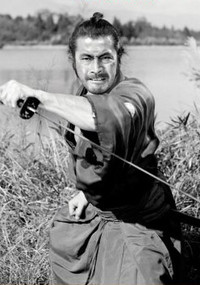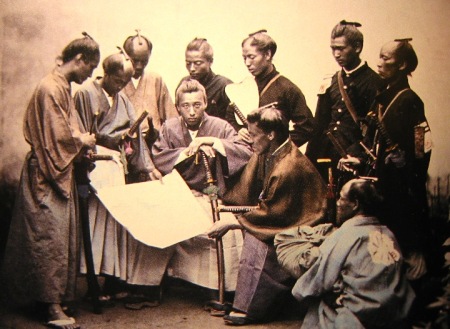Bushido: The Way of One Who Serves
The Samurai were a professional class of warrior in Japan for hundreds of years. They embodied and observed Bushido, ‘the way of one who serves’.
Bushido, like the chivalry of knighthood, is the ethical code by which the Samurai waged warfare but also lived their lives.
The precepts of Bushido has influences in Chan Buddhism, Confucian wisdom, Taoist inspiration and great works like Sun Tzu’s Art of War.
Spiritual Warriors
What the warrior and the spiritual aspirant both have in common is a path with very different goals of normal life. In normal life people settle down to grow and build, yet warriors fight and kill other people. Warriors carry weapons and dedicate their lives to sacrificing themselves for the good of society, and the wars they fight often make great changes.
The spiritual path of Gnosis is a revolutionary one, with psychological similarities to the life of a warrior, with goals that are the opposite of normal life. The Gnostic, spiritual aspirant works to dissolve their psychological attachments and to devote ourselves to greater forces. Like Bushido, Gnosis is a process, an aim and a state.
 A Samurai was by definition a man retained in the service of an officer of rank. A Samurai without a master was called a Ronin, seen as strange and unusual, and often viewed with pity. A Samurai may be without a master in two ways: the death of his master or through dismissal by his master.
A Samurai was by definition a man retained in the service of an officer of rank. A Samurai without a master was called a Ronin, seen as strange and unusual, and often viewed with pity. A Samurai may be without a master in two ways: the death of his master or through dismissal by his master.
Gnosis teaches us that without a connected to our Being, God, our internal Master, we are all like Ronin, asleep in this world, disconnected from a greater meaning and purpose.
Confucius says “Obedience to our parents is our primary human duty.”
This is best understood as obedience to our inner parents, to our Divine Mother and Inner Father. Spiritual realization calls for active living and sacrifice.
Active living is engagement in the world to be of service, and fighting is necessary, we strive to be spiritual warriors, not monks. Sacrifice is a natural outcome of love, to sacrifice our base desires to serve God and humanity. In this way the spiritual aspirant has much to learn from the path of the upright path of the Samurai warrior.

